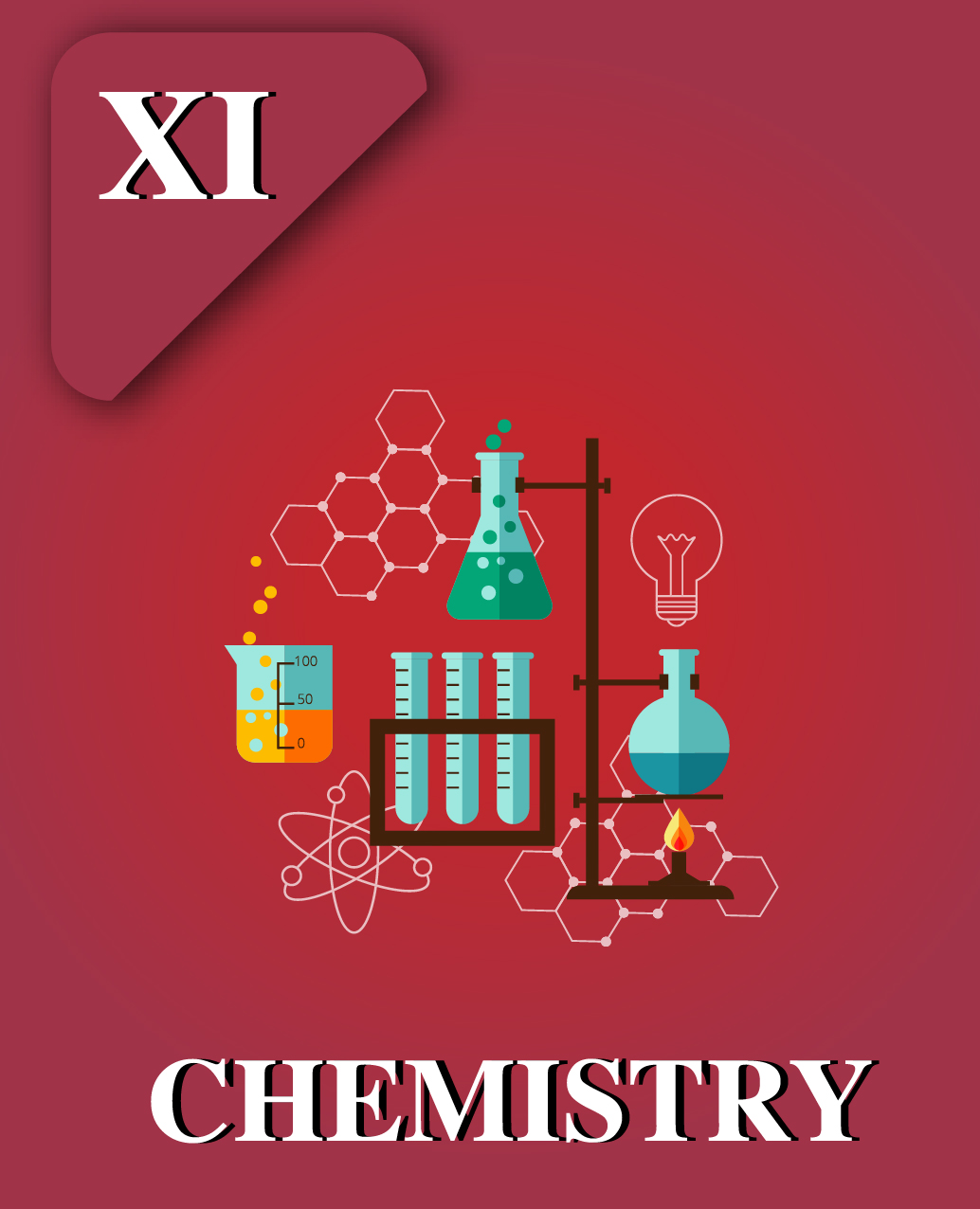Chemistry XI CBSE
About the Course
Chemistry is the science that tries to understand the properties of substances and the changes that substances undergo. Class 11 Chemistry concepts deal with the understanding of basic constituents of matter, atoms and molecules. Students must study these principles in detail in order to improve their expertise in the subject and to establish a strong foundation.
Distinguishing features
-
- Fully covers the latest syllabus as prescribed by CBSE.
- Step-Wise working rule approach has been suggested for problem solving and same is followed in Illustrative examples in every chapter
- Each chapter contains practice tests with multiple tries which provides students with hints to solve the particular question and enhance their level of understanding.
- At the end of every chapter there is chapter test, which allows students to test their knowledge of particular topic.
Learning Objectives
-
- Enhancing the school based knowledge of the student at early level..
- Making the course easy and sophisticated emphasizing competency based educational process.
- With this course the learner particularly explores responds invents and bring out the meaning to the relevant things.
- Students can construct sufficient knowledge of Mathematics
- Overall holistic development of children studying the course.
- This course helps students to learn about many of the phenomena which they observe in their daily routine
Requirements
-
- Refine their literary sensibility and enrich their aesthetic life through different literary generes.
- Student should have different language notice.
- use a dictionary or Glossary available in the courses or library to access to difficult term.
Target Audience
-
- This course mainly targets the age student preparing for some of the govt. examination particularly for teaching field.
1.Some Basic Concepts of Chemistry
In this chapter we discuss about the role of chemistry in different spheres of life, three states of matter, Importance and scope of laws, Dalton’s atomic theory ,Concept of elements, atoms and molecules. masses, mole concept , percentage composition, empirical and molecular formula, chemical reactions, stoichiometry.
2.Structure of Atom
In this unit, we shall discuss various developments which led to the evolution of the Bohr’s model and the quantum mechanical model for the atom and we study about the Aufbau principle, Pauli’s exclusion principle and Hund’s rule, electronic configuration of atoms, stability of half-filled and completely filled orbitals.
3.Classification of Elements and Periodicity in Properties
Modern periodic law and the present form of periodic table, periodic trends in properties of elements, Ionization enthalpy, electron gain enthalpy, electronegativity, valency and the nomenclature of elements are described in this chapter.
4.Chemical Bonding and Molecular Structure
In this chapter we learn about the valence electrons, bond parameters, Lewis structure, polar , covalent character of ionic bond, valence bond theory, resonance, geometry, VSEPR theory, concept of hybridization, molecular orbital theories.
5.States of Matter : Gases and Liquids
In this unit, we shall take up the physical classification of matter. Matter can be classified into three categories depending upon its physical state, namely : solid, liquid and gaseous states and study about the gas laws.
6.Chemical Thermodynamics
Concepts of system and types of systems, surroundings, work, heat, energy, extensive and intensive properties, state functions. First, Second and Third law of thermodynamics are described in this chapter.
7.Equilibrium-I
In this chapter we will study about the equilibrium in physical and chemical processes, dynamic nature of equilibrium, law of mass action, equilibrium constant, factors affecting equilibrium, degree of ionization, ionization of poly basic acids, acid strength, concept of pH, Henderson Equation.
8.Equilibrium-II
In this chapter we will discuss about the concepts of acid and bases, hydrolysis of salts , buffer solutions, solubility product, common ion effects.
9.Redox Reactions
Concept of oxidation and reduction, redox reactions, oxidation number, balancing redox reactions, in terms of loss and gain of electrons and change in oxidation number, applications of redox reactions are discussed in this chapter.
10.Hydrogen
In this unit we will learn about the position, occurrence, isotopes, preparation, properties and uses of hydrogen, hydrides in periodic table,. physical and chemical properties of water, heavy water. Hydrogen peroxide preparation, reactions and structure and uses.
11.s-Block Elements (Alkali and Alkaline Earth Metals)
This chapter explains about the general characteristics of the alkaline earth metals and their compounds. The manufacture, properties and uses of industrially important sodium and calcium compounds including Portland cement and the biological significance of sodium, potassium, magnesium and calcium metals.
12.p-Block Elements
The general trends in the p-block elements, physical and chemical properties of group 13, 14 and 15 elements and the anomalous behaviour of boron and carbon, allotropic forms of carbon, compounds of boron, carbon and silicon. Important uses of group 13, 14 and 15 elements and their compounds are discussed in this chapter.
13.Organic Chemistry—Some Basic Principles and Techniques
In this chapter we study about the general introduction, methods of purification, qualitative and quantitative analysis, classification and IUPAC nomenclature of organic compounds. Homolytic and heterolytic fission of a covalent bond: free radicals, carbocations, carbanions, electrophiles and nucleophiles, types of organic reactions.
14.Hydrocarbons
In this chapter, we understand the structures of organic molecules, concept of organic reaction mechanism, purification, IUPAC nomenclature and structure of bond.
15.Environmental Chemistry
Air, water and soil pollution, chemical reactions in atmosphere, smog, major atmospheric pollutants, acid rain, ozone and its reactions, pollution due to industrial wastes, green chemistry as an alternative tool for reducing pollution, strategies for control of environmental pollution are discussed in this chapter.








Reviews